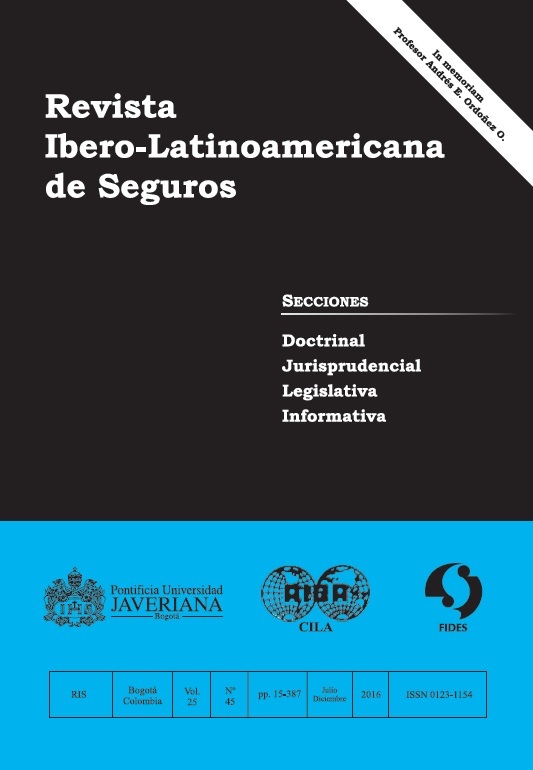Abstract
This article is aimed at revealing the tendency of the "constitutionalisation" of the Insurance Law and the exceptional protection of the Constitutional Court to the so-called "Subjects of Constitutional Protection". That issue can be observed in the way an insured or loss payee of a Life Group policy in a "defenselessness situation" by means of a writ for protection of constitutional rights demands the payment of the death benefits or the total and permanent incapacity for work without meeting the contractual and legal requirements to access to the mentioned coverages.
The stance of Constitutional Court, taking into account that the substancial law prevails over procedural law, is based on on the principles of solidarity, immediacy and subsidiarity when someone invokes the basic rights for life, minimum wage, decent housing, equality, social security among others. It is worth mentioning that such constitutional writ has been appeared on cases in which the insurance companies have refused to pay the compensation due to a reticent insured, a preexistence illness or when, over time, the insured or beneficiary of the policy loses the possibility of the chose in action due to have started the statute of limitations under the Colombian Law for insurances contract.
This journal is registered under a Creative Commons Attribution 4.0 International Public License. Thus, this work may be reproduced, distributed, and publicly shared in digital format, as long as the names of the authors and Pontificia Universidad Javeriana are acknowledged. Others are allowed to quote, adapt, transform, auto-archive, republish, and create based on this material, for any purpose (even commercial ones), provided the authorship is duly acknowledged, a link to the original work is provided, and it is specified if changes have been made. Pontificia Universidad Javeriana does not hold the rights of published works and the authors are solely responsible for the contents of their works; they keep the moral, intellectual, privacy, and publicity rights.
Approving the intervention of the work (review, copy-editing, translation, layout) and the following outreach, are granted through an use license and not through an assignment of rights. This means the journal and Pontificia Universidad Javeriana cannot be held responsible for any ethical malpractice by the authors. As a consequence of the protection granted by the use license, the journal is not required to publish recantations or modify information already published, unless the errata stems from the editorial management process. Publishing contents in this journal does not generate royalties for contributors.


